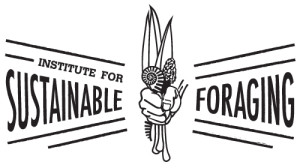THE PROCESS
The Institute for Sustainable Foraging (ISF) has established a set of standards for the foraging of ramps (wild leeks). These standards were derived from the best practices outlined in various publications and what little research is available, along with a significant reliance on the years of experience of conservation-minded foragers throughout ramp country.
The Institute is initially reaching out to foragers with a long-term reputation for holding themselves to strict standards for sustainable foraging and therefore may be eligible to meet the criteria of certification. In future years, we expect to widely solicit applications for certification among the broad community of foragers throughout the country.
The process for certification begins with a review of the ISF standards and practices with a representative of the Institute and the principal of the foraging entity (who will, in turn, be responsible for sharing them with any employees, volunteers, interns or others working with their operation), followed by an evaluation of whether or not they are currently abiding by those standards and practices. If not, the ISF will determine if they are willing and able to bring their practices into compliance. The party will then sign the certification agreement and thereby agree to abide by the standards and practices, which will be verified by a third party audit to take place during the following harvest season. If a party is found to be out of compliance in any area, they will be obliged to implement the necessary changes set forth by the ISF to retain their certification.
Once certified, the entity is granted official permission for the use of the Institute’s “Certified Sustainably Foraged” seal on their products and to otherwise identify themselves as a certified party of the ISF for ramps (wild leeks). As the ISF develops certification programs for other products, a similar process will be set forth for each foraged good.
